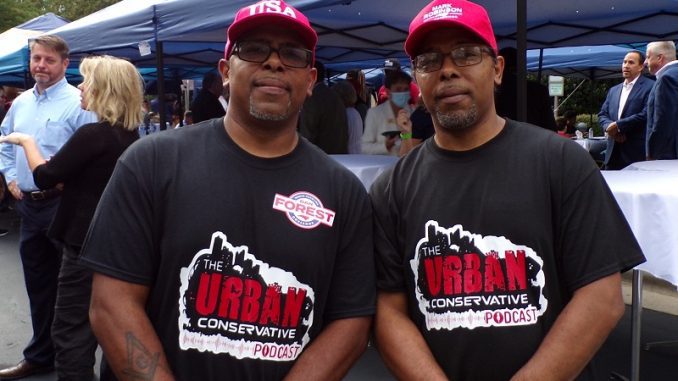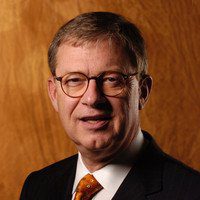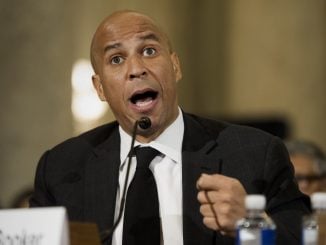
RALEIGH — Last week profiled the life of Clarence Henderson, a black conservative who was a participant in the 1960 Greensboro Woolworth’s sit-in and, more recently, a speaker at the 2020 Republican National Convention. For much of his life, being a member of the black community and having his political views was an “oddity,” but now, a new generation of black conservatives has emerged. And a lot of the energy for this movement is coming from Henderson’s home state of North Carolina.
According to Danielle Robinson, a black conservative leader who lives in Raleigh, a shift happened in just the last year. After years of individual black Republicans voting for their candidates of choice but not being too vocal in their communities, many began to emerge and connect with one another.
Robinson is a Wake County GOP precinct chair; the original director of Blexit NC, a group which calls for a “black exit” from the Democratic Party; and a board member of the North Carolina Republican Party’s Black Conservative Voices Coalition. She told NSJ that despite stereotypes of black conservatives being from the middle and upper classes, black conservatives have a wide variety of backgrounds. She used her own upbringing, being raised on the 13th floor of a housing project in Brooklyn, New York, where she routinely witnessed gang violence, as an example.
One thing black Americans tend to have in common, she said, regardless of whether they grew up middle class or working class, in New York or in North Carolina, in an urban or a rural area, is that being a Democrat is simply part of who you are.
“I don’t think you even identify the question before you identify as a Democrat,” Robinson said. “It makes being a black person and anything other than a Democrat a mind tilt for everybody involved. And if you become a Republican, the idea becomes, you are a race traitor. You are siding with the enemy, so to speak.”
But Robinson began to question this identity and the assumptions behind it while in college. Since she believed college was a place for “healthy questioning,” she began to apply some of what she was learning, specifically in economics classes, to her own upbringing and community.
While Robinson said she didn’t immediately start voting Republican, she does remember thinking to herself, “Hmm, what if I’m not a Democrat?” And as she found herself increasingly moving away from Democratic views and towards Republican views, it became clear that this was not understood or welcome among those close to her.
“I grew around black people, in a family of black people, then all of a sudden, it became, I’m no longer black; I’m no longer part of this family,” Robinson said of this time. “So when I announced that I was a Republican, it was just a huge identity crisis.”
She said this is a common story for black conservatives, having their black identity called into question by their family and friends.
“Some of us went to Thanksgiving, and were packing to-go plates within 15 minutes of being there. No one voluntarily wants to go through that.”
When Robinson moved to North Carolina around 2007, she wasn’t very politically active, but something about the age of Trump energized her and other black conservatives to become more outspoken.
“It was something about this election that brought us all out,” Robinson said. “We just met each other. One person just met this other person, and we just started building this community. It just literally organically grew.”
She said many of black conservatives even discovered they lived close to each other. Robinson said this made them realize for the first time they weren’t alone.
“Until we became a community, and I think that could have been the part that was missing before, but when you brought us together, something amazing happened in 2020 and in the tail end of 2019. When you brought together the community, it was like, ‘Wow, where did you all come from?’”
North Carolina’s black conservatives have been especially successful in gaining leadership roles in the party. Kevin Daniels of Raleigh, for example, is the RNC’s black engagement director, and Clarence Henderson has advised President Trump on black outreach. Most of all, Mark Robinson, a black Republican from Greensboro, winning the primary for N.C. lieutenant governor over a long list of prominent career politicians was another moment that showed something is happening in North Carolina.
“I’m so excited about what’s happening in North Carolina because it’s not in any other state like this. And I know this because we started getting the outpouring of other states wanting to tie into us in North Carolina and what we were doing,” Robinson said. “Now we’re taking leadership roles in the party. So, we are here to stay. We are here to grow our message in our communities, and we’re not going anywhere.”


